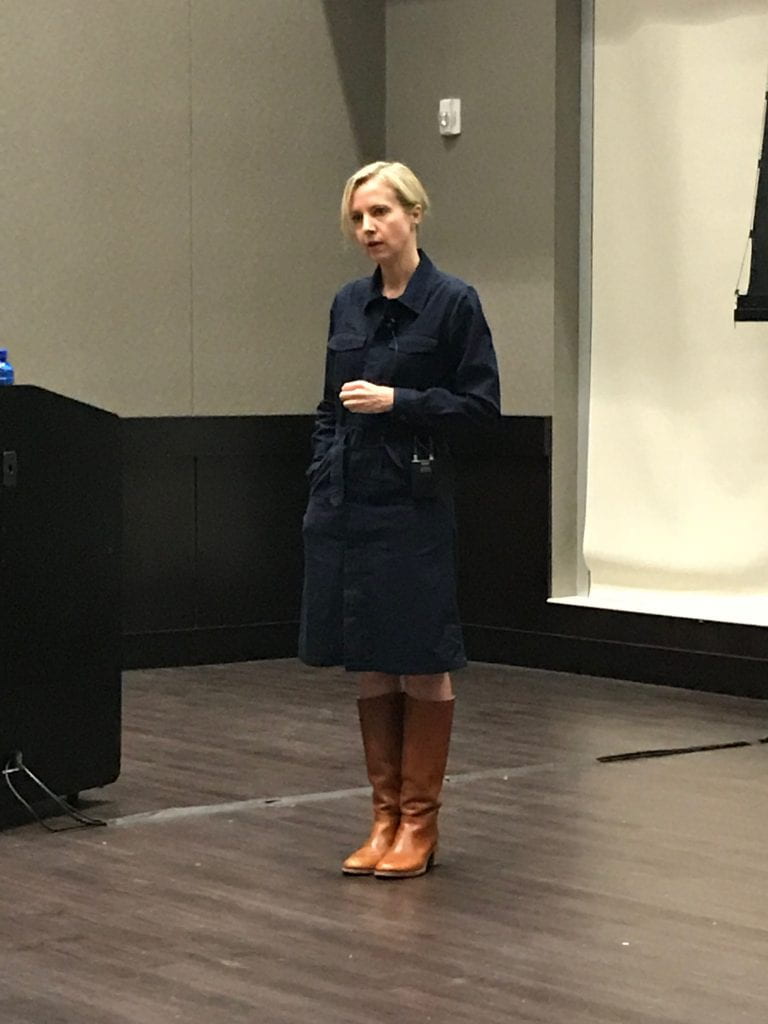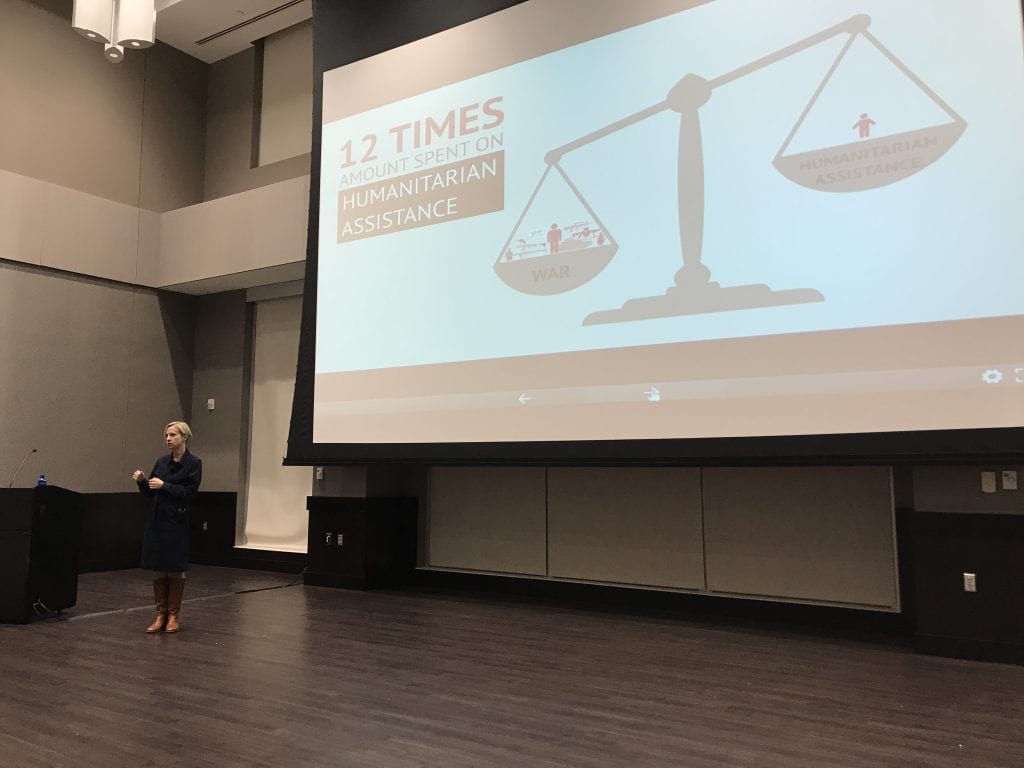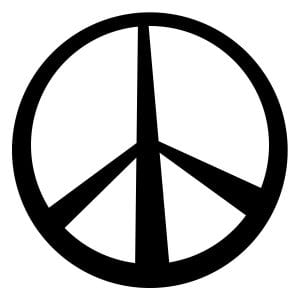On Wednesday, February 28, the UAB Institute for Human Rights hosted Dr. Samantha Nutt, founder of War Child, to talk about her experiences working in war zones. During her conversation entitled “Where Do We Go from Here? Stories from the Frontlines of the World’s Major Crises”, Dr. Nutt covered topics from ranging from personal stories from her time in Somalia to gun violence statistics in the United States. You can read more about her background here.
The illicit and licit automatic weapons market is incredibly saturated in Somalia and the United States. In this post, I argue that this oversaturation and easy access creates a gateway for violence.

Recap
The talk began with Dr. Nutt explaining how she began working in warzones – she was a volunteer doctor assigned to work in one of the world’s most dangerous countries, Somalia. She was contracted by an organization who was unable to pay her more than one dollar for her services, yet she decided to go anyway. To this day, Dr. Nutt carries with her the four quarters she received as payment.
Living in Somalia, Dr. Nutt met many people who considered this crisis area as their home. She told the story of a woman named Edith, who was a single mother who came to Dr. Nutt for medical assistance. The first time Dr. Nutt met with Edith, she was told of when Edith attempted to take her newborn child to the medical facility that was down the road. On the way there, she was ambushed by a group of boys armed with firearms who would not let her pass until she paid them a toll even though she possessed no money. As a result of being denied access to the medical facility, Edith’s child died due to malnutrition.
After suffering the loss of her child, Edith asked, “Do people where you are from know what is happening? Do they know what we go through?” Dr. Nutt replied with “I am afraid not.” On the international black market, an AR-15 can be purchased for ten dollars or less apiece; this happens in Somalia and many other states, according to Dr. Nutt. The AR-15s found in Somalia are commonly made in the United States. Upon further research, Dr. Nutt revealed that other women in surrounding villages were blockaded from accessing medical facilities by young men wielding guns as well.

“Globally, we are currently spending about $249 per person on war; that is twelve times more than what we spend on humanitarian assistance across the world.”
Glancing at the statistics, one may assume that, globally, we prioritize the sale of guns and military weapons over the safety and welfare of humans. At home and abroad, we are quick to sell a rifle but question whether or not humanitarian action is necessary at every turn.
Dr. Nutt told of another visit by Edith, immediately after Edith was subjected to an act of violence. Dr. Nutt was in her office with her phone, laptop, water, and other items an average American would consider a necessity. Edith pointed Dr. Nutt’s possessions and said, “all of this is for you. We die for nothing.”
Addressing the faults of a failed state is necessary. Ignoring these issues perpetuates cycles of violence we see in war-torn Somalia, which causes Edith and countless other people to lose their families and threatens their very existence. Education provides the tools to combat issues that threaten peace. With knowledge of what is happening in Somalia, we are indirectly fighting for Edith and the other Somali citizens that say they “die for nothing.”
“We begin to tip the balance in favor of peace when we question the institutions that infringe upon it.”
Dr. Nutt also presented on the massacre in Parkland, Florida, where seventeen high school students were murdered. She mentioned the gun used in the Parkland shooting was the same grade as the ones commonly used in Somalia to block access to health facilities. Bangalore and Messerli of the American Journal of Medicine argue that the easier it is to access firearms, the higher the chances of violence are. With the average price of an AR-15 being about ten dollars on the black market, it is safe to say that these firearms are easily accessible.
In Dr. Nutt’s recent post on the Parkland shooting titled “The Kids are not Alright,” she calls for legislative action within the United States by citing other nations’ gun control legislation:
“…every developed nation that has imposed stricter gun control in the wake of mass shootings saw a precipitous decline in mass shootings and other gun related deaths. In Australia mass shootings dropped by 93% percent after a successful government gun ‘buy-back’ program following the 1996 Port Arthur massacre, which saw 35 people slaughtered. In the United Kingdom, after strict gun control measures were introduced in the wake of the Dunblane massacre of 15 kindergartners, there has not been another mass shooting in the 22 years since. Gun homicides have dropped to one third of their former levels. In Canada, a country with looser gun laws than the UK but tighter controls relative to the United States, gun related homicides are 8 times less per capita than the country’s southern neighbours.”
We have seen the Parkland shooting survivors gather support across the nation and assemble at our nation’s capital. By calling for change, they are calling for their form of peace. This is not to say that all gun owners disrupt that peace, but a military grade assault rifle should not be available for purchase on the black market for ten dollars and should not be available to purchase at your local Wal-Mart.
Dr. Nutt concludes by stating, “It does not matter how much you give, it matters how you give.” In her post mentioned above, she says, “Political candidates who openly advocate for gun control need financial and volunteer support. And those who resist gun control measures should be actively and consistently opposed, until NRA endorsements and contributions are seen as politically toxic.”
Human rights education gives us the tools to prevent acts of violence and teaches us how to fight against it when we see it. Like the students of Parkland, it is our duty to fight for our peace both at home and abroad. By fighting against the oversaturation of guns and regulating the market here in the United States, we can hope that the number of guns circulating through the black market, and ultimately Somalia, will decrease. As human rights activists, it is our duty to fight for peace. So, where do we go from here? We go toward peace.

“Invest in peace, not war.”
To see more upcoming events hosted by the UAB Institute for Human Rights, please visit our events page here.
Disclaimer: emboldened quotations were provided by Dr. Samantha Nutt on the February 28, 2018 IHR Event.
